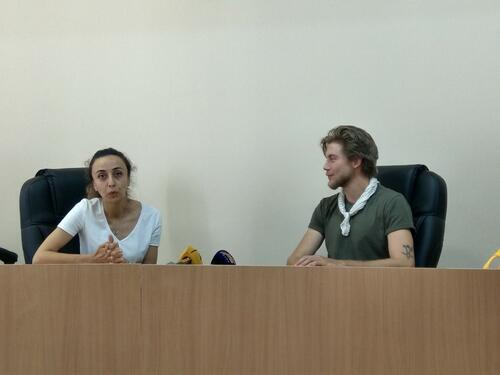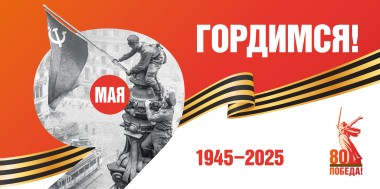In Europe, the Days of Ossetian Culture, which are held for several years by the international non-profit association Renaissance-Sandidzan (Belgium) created by a native of South Ossetia, Radion Pukhaev, have come to an end. On the Days of Culture - 2019 and on the intercultural dialogue between Ossetia and Europe, is his exclusive interview with the news agency “Res”.
- How many people attended the events of the Days of Ossetia in Europe?
- It’s probably difficult to estimate the number of guests at our events at once, as there was a whole complex of them: this is a round table, a film screening, exhibitions, an open-air, and participation in the festival. The events took place in Belgium and Luxembourg, in several cities.
For example, in Luxembourg, at the Russian-Luxembourg Friendship Festival, in which we took part, we met a family of our countrymen living on the border of Luxembourg and Germany.
Even among the performing artists there was one Ossetian. At some point, Ossetians living in Ossetia, Germany, France, Belgium and the Netherlands gathered there. Two thousand people became guests of the festival in Luxembourg in two days.
- What was your program there?
- The festival was held in the ancient castle of Beaufort. All available rooms, a courtyard and even parts of the castle walls were used. We made an exposition of works by our artists and held a master class on cooking Ossetian pies. A master class of Ossetian artists was also scheduled, which, unfortunately, did not take place, since not all artists were given entry visas to Belgium.
It was planned to write several pictures on an improvised podium near the castle walls in the presence of the audience, to the national music.
- This is not your first event to popularize the culture of Ossetia and South Ossetia, in particular, abroad. Do Europeans like Ossetian culture?
- Definitely, they like it! For example, in Luxembourg they were interested in artists who in the past had already exhibited there. They asked when they could see their works again. We received several offers. The audience really liked the graphics work by Alan Kasoev.
Unfortunately, he himself could not come, but managed to send his work. Our artists and our folklore are what we can demonstrate to the world with today. Without a doubt, we still have a lot of things that will be interesting for Europeans. One just has to try and not be afraid of some kind of failure.
- You have been living in Europe for a long time. What is positive in the European system? What would be useful to transfer to their native land?
- You know, this is quite a serious question. There is a lot of positive and, unfortunately, negative too. If you do not take some moral things that are unacceptable for Ossetians, but take individual elements, then a lot can be improved. For example, recently there was a bike ride in Tskhinval, which gathered, to the surprise of many, a huge number of participants. I want to express gratitude to the President of South Ossetia, Anatoly Bibilov, who led this action, and to all the participants.
Meanwhile, in Europe and, in particular, in Holland, bicycles are very popular. Many go to work, to shops and even to visit on bicycles. You can take their experience and when planning or reconstruction of the streets in Tskhinval, provide separate bike lanes. This will give impetus to the development and safety of this area, which, in turn, will improve both the environment and health. There are many such examples.
Taking this opportunity, I want to voice one idea, which since 2008 I have touched many times in personal conversations. It's about construction of the Arc de Triomphe in Tskhinval. to do it on people`s money. This is an important symbol. It can become the hallmark of the Hero City of Tskhinval and South Ossetia as a whole.
We won this war and paid a big price! This will perpetuate the memory of those who gave their lives, and those who were fighting and defending our right to exist. It is possible to display those who stopped the many thousands column of Georgians at the turn of the 90s, peacekeepers and defenders of Ossetia, to immortalize the memory of the victims of the genocide of the 1920s and much more.
Do the European countries understand the need for intercultural dialogue with South Ossetia in isolation from politics?
- Intercultural dialogue is necessary for all. Unfortunately, we often face the fact that it is often overly politicized. Ordinary people, artists and cultural figures do not decide whether to give visas to artists or not. When we come to Europe, we attract the interest in certain circles. We need this dialogue ourselves too. No need not to wait for us to be called.
- Is there an opportunity to hold Days of Culture of European countries and peoples in South Ossetia?
- When we hold the events in Europe, we try to meet with our colleagues and attend their workshops. We have a good circle of friends among the European artists. A few years ago, I voiced the idea of holding a joint open-air symposium in South Ossetia with the participation of artists from Ossetia and European countries. Unfortunately, nothing has come of it yet. In principle, it can be organized.
- What are your plans and what is your future vision?
- In September of this year, an exhibition of our artists in Greece is planned. We are still negotiating. Next year will be 10 years of the Days of Ossetian culture in Europe. I hope, it will be possible to organize the anniversary events, maybe even in Ossetia, with the participation of European artists. Above all, we have a parallel project directly related to the Days of Ossetian culture in Europe. This is the “Reflection of Europe” through the eyes of the modern Ossetian artists.
All the artists who participated for nine years in the Days of Ossetian Culture in Europe, reflected on the canvas their impressions. Some works were based on sketches made in open-air and master classes directly in Holland, France, Luxembourg and Belgium. The project “Reflection of Europe” is a very interesting one.
It allows you to look at the familiar Old World in a new way - through the eyes of modern Ossetian artists. I would like to hold this series of exhibitions in the regions of Russia and abroad.















